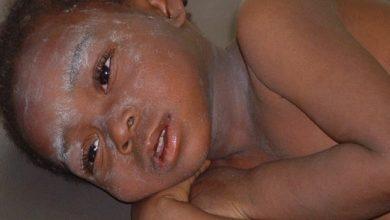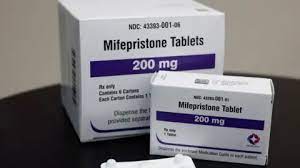WHO Focuses On Global Cooperation As It Celebrates 75 Years In Operation

The World Health Organization is celebrating 75 years of improving public health with a clarion call for governments and leaders to take action to protect and invest in health and care workers who are at the forefront of the response to health and climate emergencies.
To mark this year’s Anniversary, the UN Health Agency looks to improve on its phenomenal achievements which have since seen the eradication of smallpox and the incidence of polio reduced to 99 per cent since its founding over the past seven and a half decades.
The organisation was established in the aftermath of World War Two as a treaty between world nations dedicated to health as a human right, and the World Health Organization (WHO) will mark its 75 years in operation along with its 194 Member States and other partners, by calling for a renewed drive for health equity, according to the Director-General of WHO, Dr. Tedros Adhanom Ghebreyesus, in a Statement.
“The history of WHO demonstrates what is possible when nations come together for a common purpose,” Dr. Ghebreyesus continues.
“We have much to be proud of, but much work to do to realize our founding vision of the highest attainable standard of health for all people. We continue to face vast inequities in access to health services, major gaps in the world’s defences against health emergencies, and threats from health harming products and the climate crisis.
“We can only meet these global challenges with global cooperation.”
To meet these challenges, WHO is urging countries to take urgent action to protect, support and expand the health workforce as a strategic priority. Investments in education, skills and decent jobs for health need to be prioritized to meet the rapidly growing demand for health and avert a projected shortage of 10 million health workers by 2030; primarily in low- and middle-income countries,” he solicits.
A global education programme on basic emergency care targeting 25% of nurses and midwives from 25 low- and middle-income countries by the end of 2025 was also recently announced by WHO.
“This 25x25x25 emergency care programme will provide nurses and midwives with the skills and competencies to make a major difference in saving lives and reducing disabilities.”
The Global Health Body says its priority towards the next one hundred years is to address future health challenges through a renewed commitment to health equity.
“In the shadow of the COVID-19 pandemic, WHO’s roadmap to recovery includes an urgent paradigm shift towards promoting health and well-being and preventing disease by addressing its root causes and creating the conditions for health to thrive.
“WHO is urging countries to provide health by prioritizing primary health care as the foundation of universal health coverage.
The WHO DG reveals the COVID-19 pandemic showed that protecting health was fundamental, “to our economies, societies, security and stability, adding that learning from the worst pandemic in recent history.
“WHO stands ready to support the countries of the world as they negotiate a pandemic accord, the revision of the International Health Regulations and other financial, governance and operational initiatives to prepare the world for future pandemics”.
The WHO Boss adds that in the past five years, WHO had invested in science and digital health, creating a Science Division led by the Organisation’s first Chief Scientist, just as he emphasizes the importance for countries to protect the public from the ills of misinformation and disinformation.
“The future of health depends on how well we power health through science, research, innovation, data, digital technologies, and partnerships,” he concludes.





